You are here
New Releases
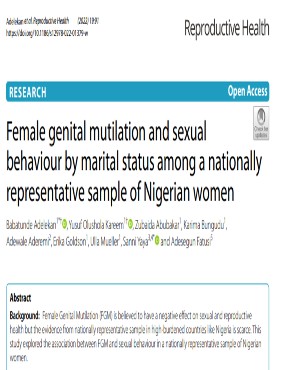
Female genital mutilation and sexual behaviour by marital status among a nationally representative sample of Nigerian women
Abstract Background: Female Genital Mutilation (FGM) is believed to have a negative effect on sexual and reproductive health but the evidence from nationally representative samples in high-burdened countries like Nigeria is scarce. This study explored the association between FGM and sexual behaviour in a nationally representative sample of Nigerian women. Methods: A secondary data analysis was conducted using the Nigeria Demographic Health Survey conducted in 2013 and 2018 among women aged 15–49 years. The descriptive summaries of respondent characteristics by marital status were presented using frequencies and percentages. The proportion and 95% Confidence Interval (CI) of circumcision by sexual behaviour characteristics were computed. A multivariable log-binomial logistic regression was used to determine the association between sexual behaviour and female circumcision while adjusting for other covariates. All analyses were performed using Stata 15.1 (StataCorp, College Station, TX, USA) at the 0.05 level of significance.
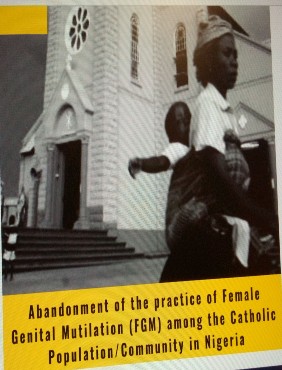
Advocacy Brief document on abandonment on FGM
FGM is a harmful practice that has no health benefits for girls and women; instead, it is a violation of their human rights that causes short and long-term consequences, including Severe bleeding, cysts, and problems passing urine and menses Death of the victim through bleeding, infection or complications of childbirth with increased risk of newborn death and fistula. Often affects the victim’s mental health long into her adult life including signs of psychological trauma: anxiety, somatization, depression, post-traumatic stress, and other mood disorders.
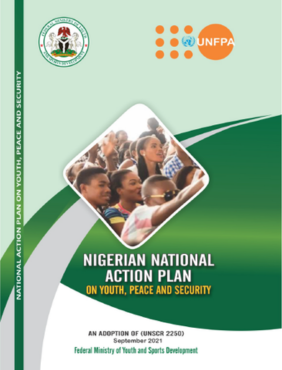
Nigerian National Action Plan on Youth, Peace and security
In most conflict situations around the world, the youths are always considered the perpetrators as well as victims. They are either active in the frontline or they are at the receiving end of the aftermath of war.
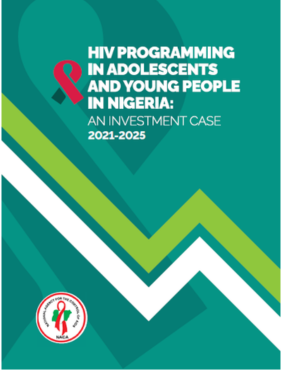
HIV Programming in adolescents and young people in Nigeria 2021-2025
In line with the global HIV and AIDS agenda, Nigeria set the goal of achieving the 90-90-90 target by 2020 in its National Strategic Framework on HIV and AIDS (2017-2021). The mentioned target aims at ensuring that 90% of all people living with HIV know their HIV status, 90% of all people with diagnosed HIV infection receive sustained antiretroviral therapy, and 90% of all people receiving antiretroviral therapy have viral suppression.
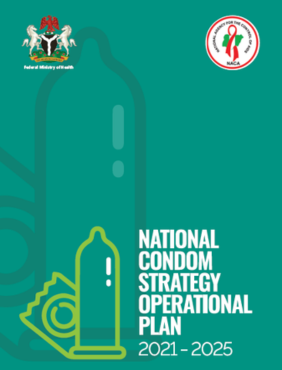
National condom Strategy Operational Plan
The Federal Ministry of Health remains committed to the reduction of incidence of Human Immunodeficiency Virus/Accquired Immune Deficiency Syndrome (HIV/AIDS) and other sexually transmitted infections (STIs) as well as the prevention of unintended pregnancies in Nigeria.
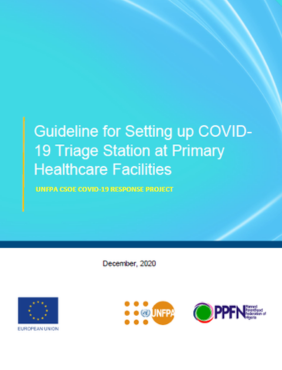
Guideline for Setting up COVID-19 Triage Station at Primary Healthcare Facilities
Nigeria is one of the countries affected globally by COVID-19 which was declared as a Public Health Emergency of International Concern (PHEIC) and characterized as a pandemic by World Health Organization (WHO) in January 2020.
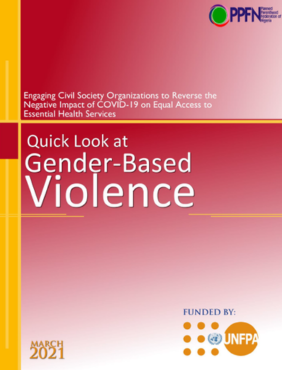
Quick look at Gender-based Violence
Engaging Civil Society Organizations to reverse the negative impact of Covid-19 on equal access to essential health services was a timely project which keyed into the National strategic concepts to reduce the spread of Covid-19 pandemic and ensure that access to essential health services especially (SRH services) are maintained.
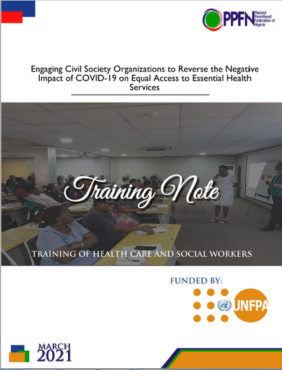
Engaging Civil Society Organizations to reverse the negative Impact of COVID-19 on equal access to Essential Health Service
Engaging Civil Society Organizations to reverse the negative impact of Covid-19 on equal access to essential health services was a timely project which keyed into the National strategic concepts to reduce the spread of Covid-19 pandemic and ensure that access to essential health services especially (SRH services) are maintained.
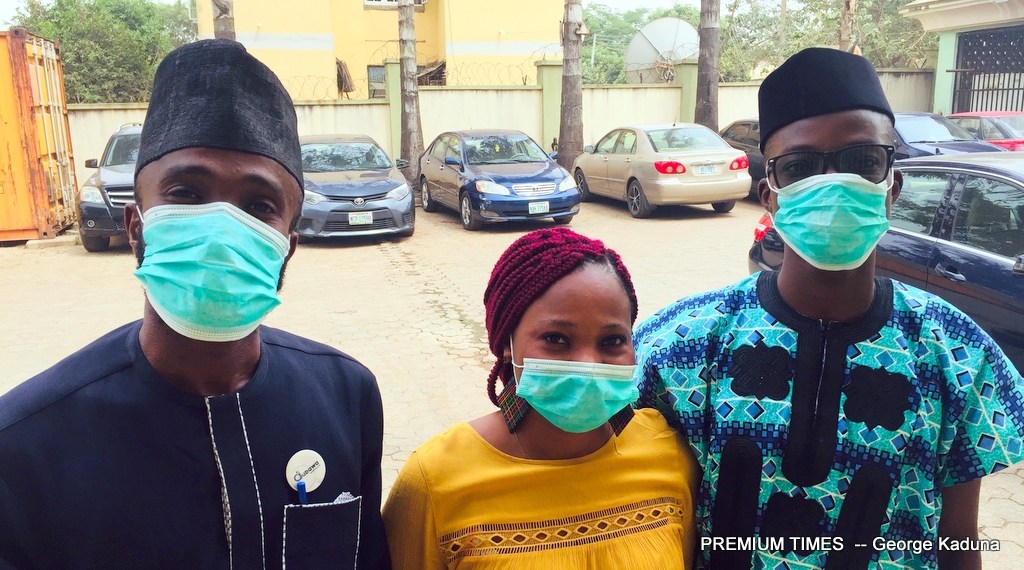
COVID 19 CALL LINE 2020 REPORT
UNFPA COVID 19 CALL LINE 2020 REPORT
The COVID-19 pandemic and ensuing social and economic aftereffects caused havoc on health systems and the everyday lives of individuals. Governments, health systems, and social safety networks previously under strain could not cope with the new realities and already existing gaps in the sexual and reproductive health of young people were further enlarged. Resources pulled from other health and social services to support the response to the pandemic further increased the negative impact of COVID-19 on young people. Global predictions and reports confirmed the need for increased focus on young people’s mental, sexual, and reproductive health needs. The rise in gender-based violence during lock-downs and close shutdowns further affected the exposure of young people to challenges without recourse to adequate support.
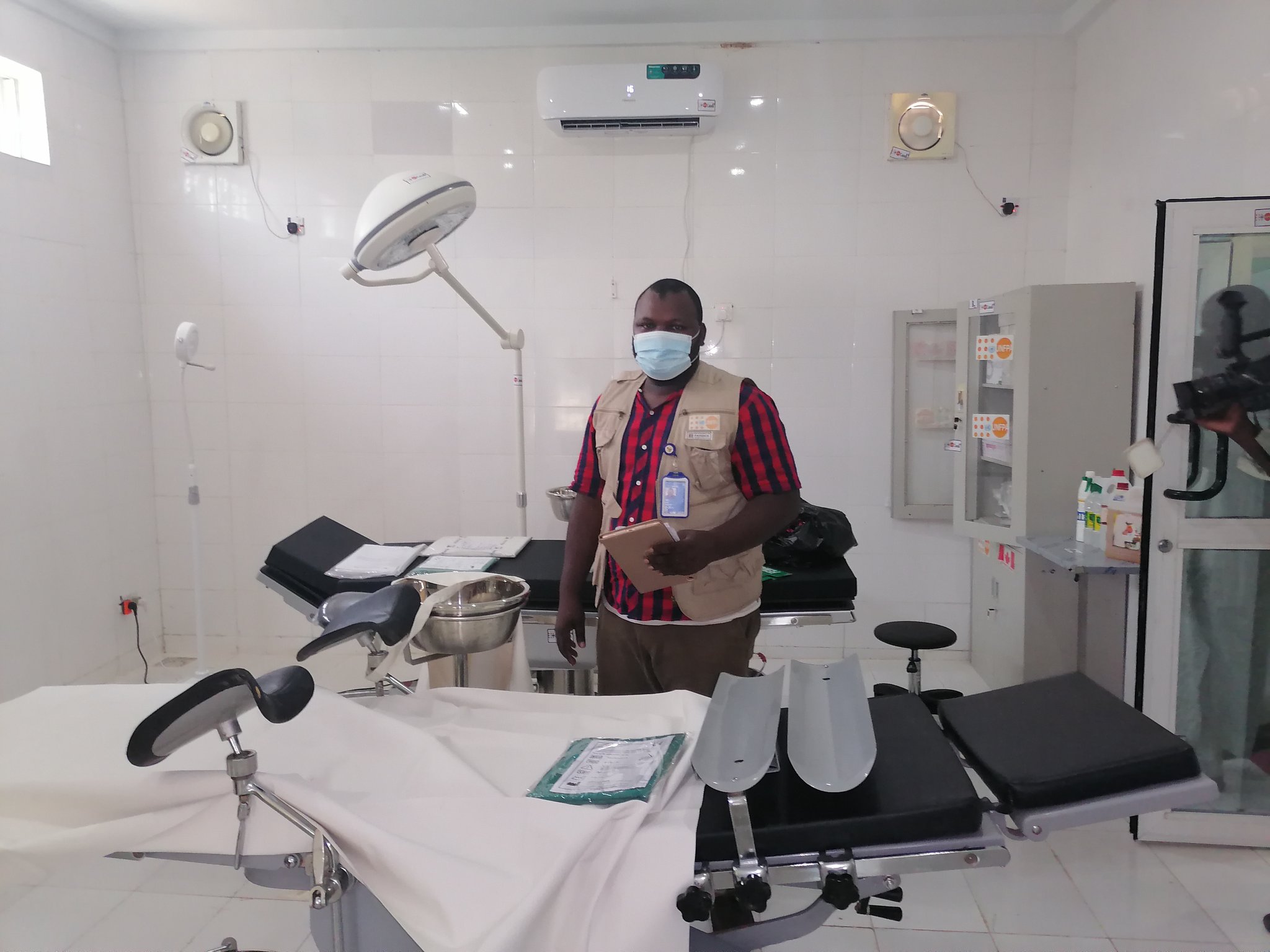
National Behaviour Change Strategy for Fistula Nigeria
Obstetric fistula (OF) is an abnormal opening between the vagina, bladder and/or rectum, often caused by prolonged obstructed labour and is marked by incontinence of urine, faeces or both (NSF 2019-2023).
It is closely and directly linked to maternal mortality and morbidity. Basically, there are two main types: (a) Vesicovaginal fistula (VVF) which is a situation in which the abnormal
an opening is between the bladder and the vagina resulting in continuous leakage of urine and, (b) Recto-vaginal fistula (RVF), which is a situation when the opening is between
the rectum and the vagina resulting in leakage of faeces.